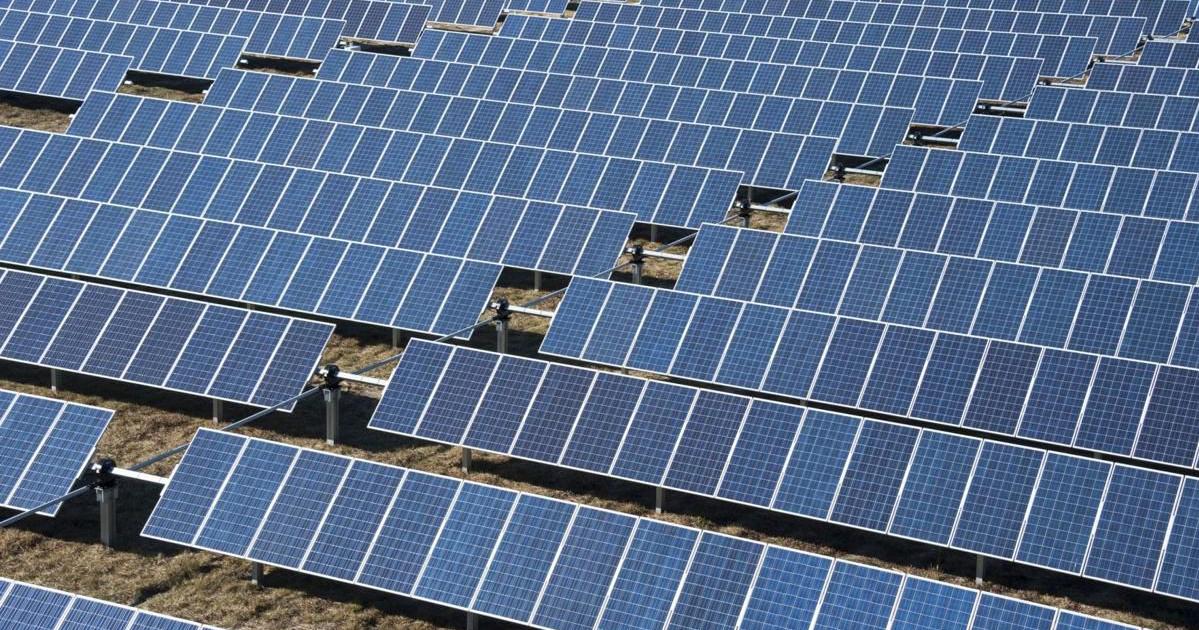Household electric bills in South Carolina will increase far more than expected in the coming decade due to provisions of the “Big Beautiful Bill,” according to one analysis focused on the energy sector.
Only one state is projected to see a larger hike in household electric bills than South Carolina, where the report anticipates $52.50 per month in additional charges.
The study by Energy Innovation Policy & Technology concluded that about one-third of the 1,000 gigawatts of renewable power generation that had been expected to come online, such as solar and wind power, won’t be built because federal financial incentives are being stripped away.
As a result, the organization projects domestic job losses related to manufacturing and installing those power systems. Also, it sees rising household electricity bills as energy supplies are constrained at a time when demand is rising fast to power server farms that support artificial intelligence applications.
“If it’s things like breaks on property taxes that are bringing in data centers, they can afford the electricity, but prices will rise for consumers,” said Dan O’Brien, a co-author of the report.
Depending on the state, by 2035, households could see their annual power bills rise between $55 (Washington) and $640 (Missouri), with South Carolina tied (with Kentucky) for the second-highest price increase at $630, the study concluded. The difference in cost estimates are tied to state regulations and the type of power-generation relied upon.
O’Brien said states best suited for solar and wind generation, generally in the South and West, will see larger impacts.
“Reduced clean energy investment will increase fuel and operating expenses across the country,” said the Energy Innovation Policy & Technology group’s report.
The organization describes itself as a non-partisan provider of research and analysis “to support policy design that reduces emissions at the speed and scale required for a safe climate future.”
Taylor Reidy, spokesperson for Sen. Lindsey Graham, R-S.C., suggested that the group isn’t neutral on politics because it supports renewable energy but not energy powered by fossil fuels. She said the legislation Graham supported “positions South Carolina utilities to drive down consumer costs and spur new economic growth.”
“This newly-signed law is great news for South Carolina consumers because it boosts investments in nuclear power which is the dominant source of clean, reliable power in South Carolina,” said Reidy.
The 870-page tax and spending package President Donald Trump recently signed into law preserved and extended tax breaks for nuclear energy development that were created during the Biden administration, while phasing out tax breaks for solar and wind power.
Multiple studies agree
The Kleinman Center for Energy Policy at the University of Pennsylvania looked at eight different analyses of the impact of removing federal support for renewable energy, including the Energy Innovation report and one from Princeton University, and all eight projected higher electric bills across the nation would result.
“This so-called ‘nonpartisan’ group is running political PR for Washington’s green energy schemes, not serious analysis, and South Carolina families aren’t buying it,” said Sydney Long, communications director for Rep. Nancy Mace, R-Charleston, referring to the Energy Innovation group. “President Trump’s One Big Beautiful Bill phases out Biden’s costly green energy subsidies which distorted energy markets, incentivized costly, intermittent energy sources over dependable baseload power, and eroded the reliability of our grid.”
Some utilities have also raised concerns. The CEO of NextEra, the nation’s largest electricity provider, has been warning that traditional power plants take much longer to build than solar farms.
“Now is not the time to take options off the table. The stakes are too high,” NextEra CEO John Ketchum wrote in a commentary for Forbes in June. “Finishing second in artificial intelligence cannot be an option. Nor should squandering an opportunity to create American jobs.”
Utilities could still choose to build or contract solar and wind farms, but at a higher cost without the tax credits.
In South Carolina, state-owned utility Santee Cooper believes tax provisions in the recently-signed legislation “will help with some projects going forward,” said spokesperson Mollie Gore, citing the extension of incentives related to nuclear power plant construction.
The utility has been seeking investors interested in buying and completing the two unfinished reactors at V.C. Summer, a nuclear power project that had failed in the 2010s, costing state ratepayers billions of dollars and spawning criminal investigations and the sale of South Carolina Electric & Gas.
Santee Cooper plans with Dominion Energy to build a new natural gas power plant — a pipeline would be built to deliver the fuel. The utility also has a 200 megawatt solar array under construction in Georgetown County and is in contract negotiations for another solar project of the same size.
“We are moving forward with planning a natural gas station and have 400 megawatts of solar under construction or in final contract negotiations,” Gore said.













